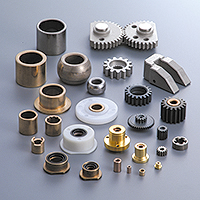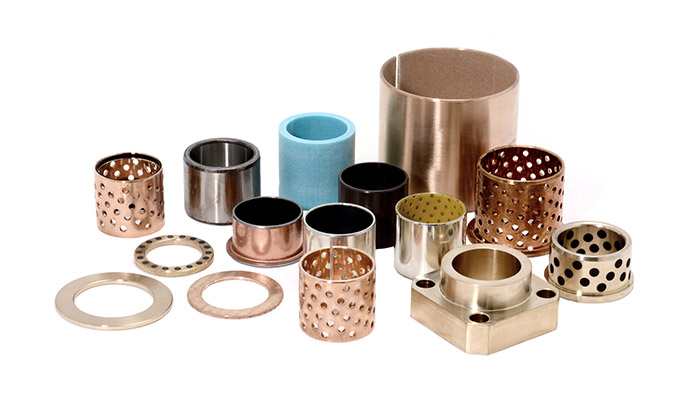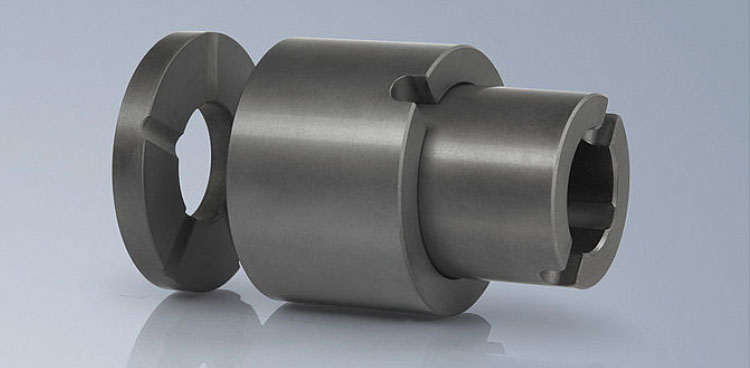Product Description
Good Quality Stainless Steel Factory Custom Double Row Angular Contact Ball Bearing
Product Parameters
|
Model Number |
Angular contact ball bearings |
|
Type |
Ball. |
|
Number of Row |
single row. |
|
Contact Angle |
15°, 25°, 40°. |
|
Material |
supreme chrome steel AISI 52100 or stainless steel AISI 440C. |
|
Cage Material |
steel, nylon, brass. |
|
Hardness |
HRC 60-64. |
|
Radial Clearance |
C0, C2, C3, C4, C5. |
|
Vibration |
ZV1, ZV2, ZV3. |
|
Precision Rating |
ABEC-1, ABEC-3, ABEC-5, ABEC-7, ABEC-9. |
|
Grease |
As per your requirement, such as Chevron SRI-2 ,Multemp PS2, Shell Alvania R2, Changcheng 2 and so on. |
|
Certifications |
ISO 9001:2008. |
|
Brand Name |
HQA |
|
Package |
plastic tube package, single box package, industrial rolled package or as per buyer’s requirement. |
|
Place of Origin |
China (Mainland). |
|
Features |
(1) high precision; |
|
(2) high speed; |
|
|
(3) low noise; |
|
|
(4) long life span. |
|
|
Application |
machine tool spindle, high-frequency motor, gas turbine, centrifugal separator, front wheel of small car, |
|
differential pinion shaft etc. |
|
|
Payment Term |
TT or L/C or Western Union. |
|
Port |
HangZhou. |
Advantages
|
1) Low friction 9) Save cost for buyer |
Our Service
|
1.We are a manufacturer of producing bearing for more than 10 years of experience in product,and a trading company to the abroad in the worlds. 2.The Most advanced machinery and a strict quality control team. 3.On-time delivery service. 4.Accept non-standard production according to customers’ requirement. 5.High level of performance, quality, of all equipment and service. 6.Promptness in technical support pre- and after sales. 7.Do OEM for our customers. |
Product Description
Detailed Photos
Application of Bearing
Strict Testing Produre
Company Profile
Packaging & Shipping
FAQ
Q: Are you trading company or manufacturer ?
A: We are factory.We have our own brand:HQA .If you interested in our product,I can take you to visit our factory.
Q: How long is your delivery time?
A: Generally it is 5-10 days if the goods are in stock. or it is 15-20 days if the goods are not in stock, it is according to quantity.
Q: Where is your factory located? How can I visit there?
A: Our factory is located in ZheJiang Province,You can take the high-speed rail or plane to visit.
Q: Do you provide samples ? it is free charge?
A: Yes, we could offer the sample for free charge but do not pay the cost of freight.
Q:The MOQ is how much?
A: About ordinary standard type of bearing ,We have rich inventory,not have MOQ,if your need a
product is Non-standard size,need customize,we will according the product size to determine the MOQ.
/* January 22, 2571 19:08:37 */!function(){function s(e,r){var a,o={};try{e&&e.split(“,”).forEach(function(e,t){e&&(a=e.match(/(.*?):(.*)$/))&&1
| Aligning: | Non-Aligning Bearing |
|---|---|
| Separated: | Separated |
| Feature: | Low Temperature, Corrosion Resistant, High Temperature, Low Viberation |
| Rows Number: | Single |
| Raceway: | Spherical Raceway |
| Material: | Bearing Steel |
| Samples: |
US$ 0.01/Set
1 Set(Min.Order) | |
|---|

Role of Sliding Bearings in Vibration Dampening and Shock Absorption Applications
Sliding bearings are essential components in applications where vibration dampening and shock absorption are critical. Here’s how they fulfill this role:
Vibration Dampening:
In various industrial processes and equipment, vibrations can lead to reduced performance, increased wear and tear, and even structural damage. Sliding bearings help dampen vibrations by providing a cushioning effect between moving components. The design of sliding bearings allows them to absorb and dissipate vibrations, preventing them from propagating throughout the machinery.
Shock Absorption:
Heavy machinery and equipment often experience sudden impacts or shocks due to sudden loads or external forces. Sliding bearings with their ability to absorb shocks and impacts help protect machinery from damage. They act as buffers that absorb and distribute the energy generated by these shocks, preventing it from causing harm to other components or the machinery structure.
Isolation of Vibrations:
Sliding bearings can be strategically placed in machinery to isolate specific components or sections from vibrations. This isolation helps maintain the stability and accuracy of delicate components that might be sensitive to vibrations, such as precision instruments or measurement devices.
Enhanced Comfort:
In applications involving human interaction, such as vehicles or industrial tools, sliding bearings contribute to user comfort. By reducing vibrations and shocks transmitted to the operator or occupants, sliding bearings improve the overall user experience and reduce operator fatigue.
Prevention of Resonance:
Resonance is a phenomenon where vibrations can be amplified due to the natural frequencies of the components. Sliding bearings help prevent resonance by providing damping properties that counteract the amplification effect. This is crucial in applications where precise control and stability are required.
In conclusion, sliding bearings play a vital role in applications requiring vibration dampening and shock absorption. Their ability to dampen vibrations, absorb shocks, isolate vibrations, enhance comfort, and prevent resonance contributes to the efficient and reliable operation of machinery and equipment in various industries.

Signs of Wear or Damage in Sliding Bearings and Replacement Timing
Recognizing signs of wear or damage in sliding bearings is crucial for maintaining the performance and integrity of machinery and equipment. Here are the common signs to look for and the appropriate timing for replacement:
Increased Friction and Heat: If you notice higher levels of friction or heat around the bearing area, it could indicate that the bearing surfaces are experiencing excessive wear. Over time, this can lead to reduced efficiency and potentially cause further damage to the bearing and surrounding components.
Abnormal Noise: Unusual noises, such as grinding, squeaking, or knocking sounds, can indicate wear or damage within the sliding bearings. These noises are often caused by metal-to-metal contact or irregular movement of the bearing surfaces.
Uneven Wear Patterns: Inspect the bearing surfaces for uneven wear patterns, pitting, or scoring. These signs suggest that the bearing is not distributing the load properly, leading to localized damage and reduced performance.
Reduced Performance: If you notice a decline in the overall performance of the machinery or equipment, such as decreased output, slower operation, or reduced precision, it could be due to compromised sliding bearings.
Excessive Vibration: Excessive vibration can be a result of misaligned or damaged sliding bearings. Vibrations can affect the stability of the machinery and lead to premature wear of other components.
Visible Debris or Contamination: If you observe signs of debris, contaminants, or metal particles in the lubricant or around the bearing area, it could indicate wear or damage. Contaminants can accelerate wear and cause abrasive damage to the bearing surfaces.
Leakage of Lubricant: Sliding bearings often require proper lubrication to function effectively. If you notice a significant amount of lubricant leakage or seepage, it might be a sign that the bearing seals are compromised, which can lead to inadequate lubrication and accelerated wear.
Replacement Timing: It’s essential to replace sliding bearings as soon as signs of wear or damage are detected. Delaying replacement can lead to further deterioration, increased downtime, and potential damage to other components. Regular maintenance and inspections can help catch these issues early and prevent costly breakdowns.
Overall, monitoring the condition of sliding bearings through routine inspections and addressing signs of wear promptly can help ensure the longevity, efficiency, and reliability of machinery and equipment.

Considerations for Selecting Sliding Bearings
When choosing a sliding bearing for a specific application, several key factors should be taken into consideration:
- Load Capacity: Determine the maximum load the bearing will need to support. This includes both radial and axial loads, as well as any dynamic or static loads.
- Operating Conditions: Consider the operating environment, including temperature, humidity, and exposure to chemicals or contaminants. Different materials and coatings may be required for harsh conditions.
- Lubrication: Choose the appropriate lubrication method based on the application. Consider factors such as the frequency of lubrication, the availability of lubrication points, and the compatibility of lubricants with the bearing material.
- Speed and Motion: Evaluate the speed and type of motion the bearing will experience. Higher speeds may require special considerations for heat dissipation and lubrication.
- Alignment and Misalignment: Determine if the bearing will need to accommodate misalignment between the shaft and the bearing housing. Some applications may require self-aligning or spherical bearings.
- Wear Resistance: Choose a bearing material that offers good wear resistance to prevent premature wear and extend the bearing’s lifespan.
- Noise and Vibration: Consider the impact of noise and vibration on the application. Bearings with proper damping properties can help reduce noise and vibration levels.
- Maintenance Requirements: Assess the ease of maintenance, including lubrication intervals, accessibility of lubrication points, and the need for regular inspections.
- Cost and Availability: Compare the cost of the bearing with its expected performance and lifespan. Also, ensure that the chosen bearing type and size are readily available.
- Application-Specific Considerations: Some applications may have unique requirements, such as corrosion resistance, electrical insulation, or compatibility with food-grade standards.
By carefully considering these factors, you can select a sliding bearing that meets the specific needs of your application, ensuring reliable performance and longevity.


editor by CX 2024-04-26